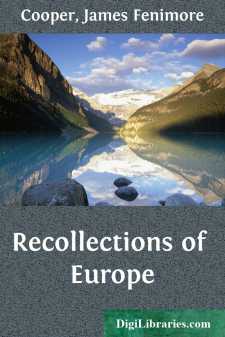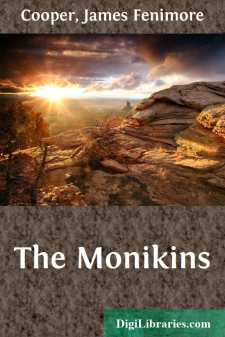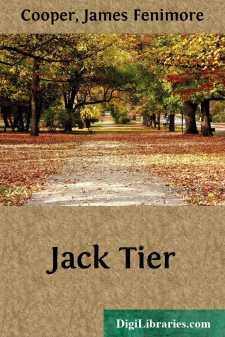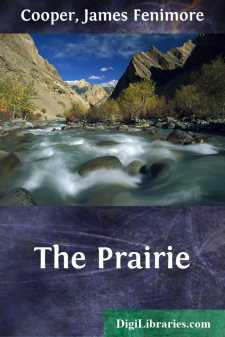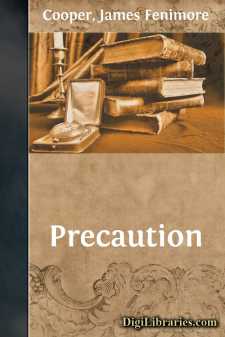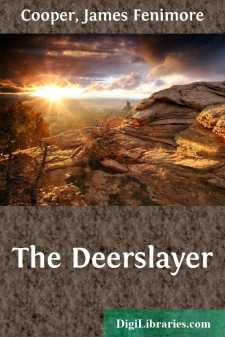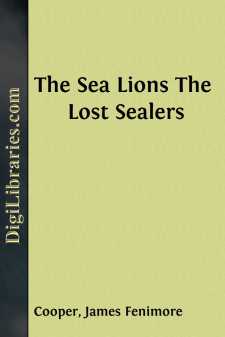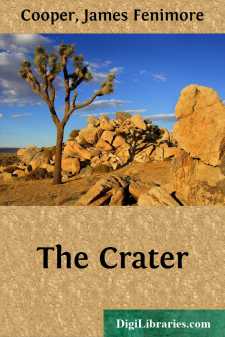Categories
- Antiques & Collectibles 13
- Architecture 36
- Art 48
- Bibles 22
- Biography & Autobiography 813
- Body, Mind & Spirit 142
- Business & Economics 28
- Children's Books 17
- Children's Fiction 14
- Computers 4
- Cooking 94
- Crafts & Hobbies 4
- Drama 346
- Education 46
- Family & Relationships 57
- Fiction 11829
- Games 19
- Gardening 17
- Health & Fitness 34
- History 1377
- House & Home 1
- Humor 147
- Juvenile Fiction 1873
- Juvenile Nonfiction 202
- Language Arts & Disciplines 88
- Law 16
- Literary Collections 686
- Literary Criticism 179
- Mathematics 13
- Medical 41
- Music 40
- Nature 179
- Non-Classifiable 1768
- Performing Arts 7
- Periodicals 1453
- Philosophy 64
- Photography 2
- Poetry 896
- Political Science 203
- Psychology 42
- Reference 154
- Religion 513
- Science 126
- Self-Help 84
- Social Science 81
- Sports & Recreation 34
- Study Aids 3
- Technology & Engineering 59
- Transportation 23
- Travel 463
- True Crime 29
James Fenimore Cooper
James Fenimore Cooper was a 19th-century American writer best known for his historical novels set on the American frontier. His most famous work, "The Last of the Mohicans," is part of the "Leatherstocking Tales" series, which follows the adventures of Natty Bumppo, a resourceful frontiersman. Cooper's writing significantly contributed to the development of American literature, highlighting themes of wilderness, native peoples, and the conflict between civilization and nature.
Author's Books:
Sort by:
PREFACE. It may seem to be late in the day to give an account of the more ordinary characteristics of Europe. But the mass of all nations can form their opinions of others through the medium of testimony only; and as no two travellers see precisely the same things, or, when seen, view them with precisely the same eyes, this is a species of writing, after all, that is not likely to pall, or cease to be...
more...
INTRODUCTION. It is not improbable that some of those who read this book, may feel a wish to know in what manner I became possessed of the manuscript. Such a desire is too just and natural to be thwarted, and the tale shall be told as briefly as possible. During the summer of 1828, while travelling among those valleys of Switzerland which lie between the two great ranges of the Alps, and in which both...
more...
PREFACE. This work has already appeared in Graham's Magazine, under the title of "Rose Budd." The change of name is solely the act of the author, and arises from a conviction that the appellation given in this publication is more appropriate than the one laid aside. The necessity of writing to a name, instead of getting it from the incidents of the book itself, has been the cause of this...
more...
INTRODUCTION "The Prairie" was the third in order of Fenimore Cooper's Leatherstocking Tales. Its first appearance was in the year 1827. The idea of the story had suggested itself to him, we are told, before he had finished its immediate forerunner, "The Last of the Mohicans." He chose entirely new scenes for it, "resolved to cross the Mississippi and wander over the desolate...
more...
Chapter I. --"But I'll not chide thee;Let shame come when it will, I do not call it;I do not bid the thunder-bearer shoot,Nor tell tales of thee to high-judging Jove;Mend when thou canst--" Lear. It is almost as impossible to describe minutely what occurred on the boat's reaching the Wallingford, as to describe all the terrific incidents of the struggle between Drewett and myself in...
more...
W. C. Bryant's Discourse on the Life, Genius, and Writings of James Fenimore Cooper, Delivered at Metropolitan Hall, N.Y., February 25, 1852. It is now somewhat more than a year, since the friends of James Fenimore Cooper, in this city; were planning to give a public dinner to his honor. It was intended as an expression both of the regard they bore him personally, and of the pride they took in the...
more...
CHAPTER I. The turf shall be my fragrant shrine;My temple, Lord! that arch of thine;My censer's breath the mountain airs,And silent thoughts my only prayers.MOORE The sublimity connected with vastness is familiar to every eye. The most abstruse, the most far-reaching, perhaps the most chastened of the poet's thoughts, crowd on the imagination as he gazes into the depths of the illimitable...
more...
Chapter I."There is a pleasure in the pathless woods,There is a rapture on the lonely shore.There is society where none intrudes,By the deep sea, and music in its roar:I love not man the less, but nature more,From these our interviews, in which I stealFrom all I may be, or have been before,To mingle with the universe, and feelWhat I can ne'er express, yet cannot all conceal" Childe Harold....
more...
Chapter I. ----"When that's goneHe shall drink naught but brine." Tempest. While there is less of that high polish in America that is obtained by long intercourse with the great world, than is to be found in nearly every European country, there is much less positive rusticity also. There, the extremes of society are widely separated, repelling rather than attracting each other; while among...
more...
Chapter I. "'Twas a commodity lay fretting by you; 'Twill bring you gain, or perish on the seas." Taming of the Shrew. There is nothing in which American Liberty, not always as much restrained as it might be, has manifested a more decided tendency to run riot, than in the use of names. As for Christian names, the Heathen Mythology, the Bible, Ancient History, and all the classics,...
more...


